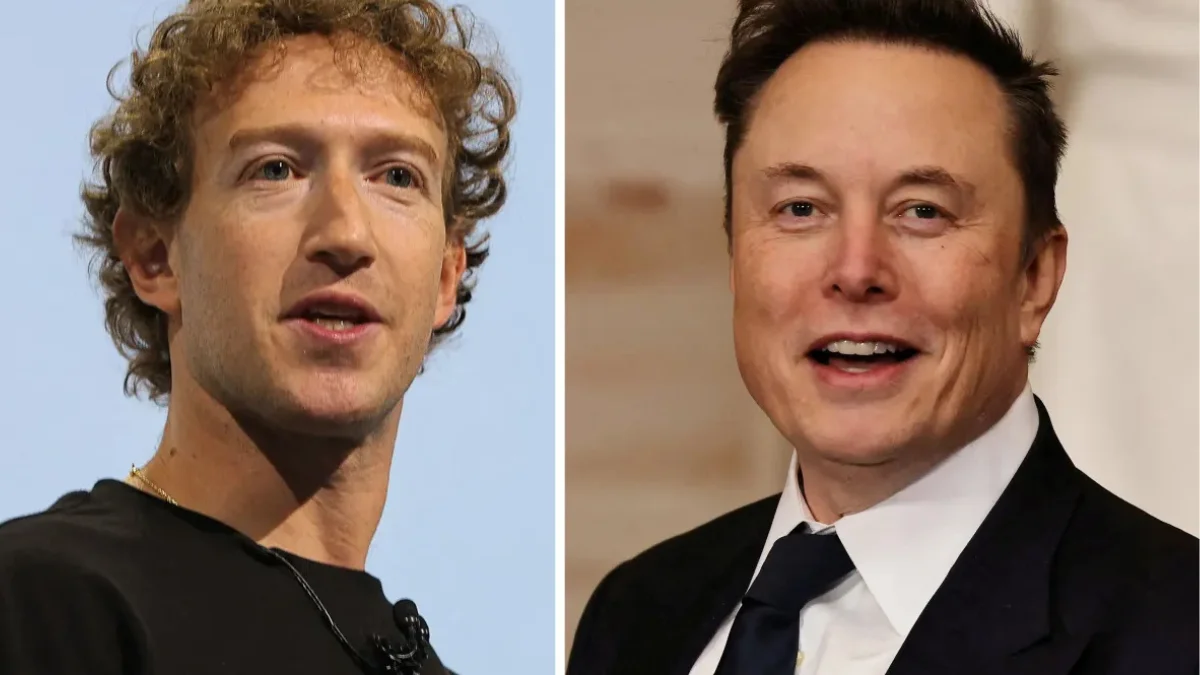Necessary Always Active
Necessary cookies are required to enable the basic features of this site, such as providing secure log-in or adjusting your consent preferences. These cookies do not store any personally identifiable data.
|
||||||
|
||||||
|
||||||
|

Elon Musk asked Zuckerberg to join the OpenAI takeover bid in early 2025, seeking financial backing for a $97.4 billion takeover bid, CNBC reported. This surprising move highlights the shifting alliances and power dynamics within the AI industry as companies compete for market dominance.
The filing stems from an ongoing legal battle between Elon Musk and OpenAI, launched last year in a federal court in Northern California. Musk proposed buying OpenAI in February due to OpenAI’s shift toward a for-profit model. Once close allies, Musk and Altman have since become rivals as OpenAI rose to dominance in generative AI with multibillion-dollar backing from Microsoft.
Musk approached the Meta CEO for OpenAI’s acquisition discussions during a series of private meetings held in Silicon Valley. Sources close to the negotiations suggest the conversations were more serious than initially believed.
The proposal involved combining resources from both companies to mount a credible challenge to OpenAI’s ownership structure. Musk believed that Meta’s financial backing could make the difference in a potential bidding war.
Zuckerberg reportedly listened to the proposal but remained noncommittal during initial discussions. The Meta CEO expressed concerns about regulatory scrutiny and potential antitrust challenges such a deal might face.
The documents reveal details about Meta’s financing of OpenAI bid discussions that took place over several weeks. Musk’s team presented various financial structures that would allow both companies to benefit from OpenAI’s technology.
Social media giants’ massive cash reserves and strong balance sheets made them an attractive potential partner for Musk’s $97.4 billion bidding plans. Meta has been investing heavily in AI development for its own platforms and services.
However, the Musk xAI takeover bid for Meta’s financing request faced several practical challenges from the beginning. Legal experts questioned whether such a partnership would pass regulatory review given both companies’ market positions.
This development adds another layer to the ongoing Musk and Zuckerberg’s AI power struggle that has been playing out across multiple fronts. Both leaders have made significant investments in artificial intelligence research and development.
Musk has repeatedly criticized OpenAI’s direction since leaving its board several years ago. He argues that the company has strayed from its original mission of developing safe, beneficial AI for humanity.
Zuckerberg has positioned Meta as a major player in the AI space through substantial investments in research and talent acquisition. The company’s Reality Labs division has been working on advanced AI applications for virtual and augmented reality.
The competitive landscape in AI continues to evolve rapidly. Both Musk and Zuckerberg remain focused on their respective AI initiatives. xAI continues developing its own large language models, while Meta invests heavily in AI infrastructure and applications.
The filing provides rare insight into the complex negotiations and strategic thinking happening at the highest levels of the tech industry as companies position themselves for the AI revolution.